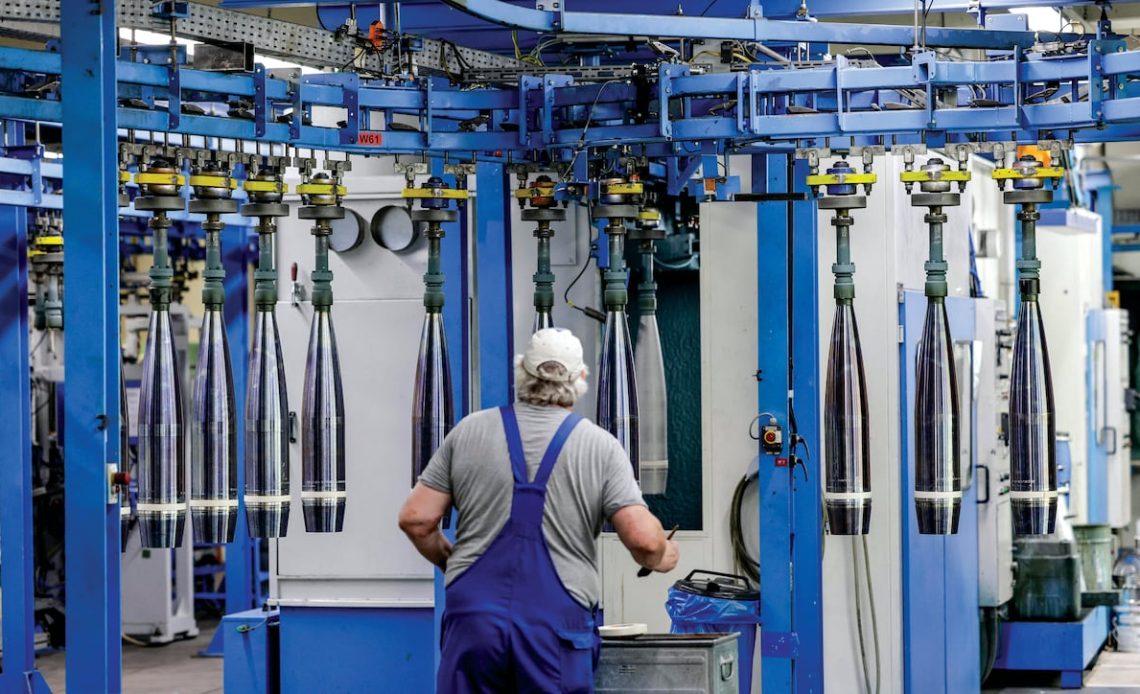
MILAN — Lithuania’s offer to lower administrative hurdles for foreign defense companies seeking to set up shop in the Baltic state has found several takers in major Western defense manufacturers.
The response comes after the Lithuanian government approved new legal amendments aimed at simplifying and shortening the procedures required for international companies to build local plants for cranking out ammunition.
Officials introduced a new category of investment projects, which grants large-scale production projects in the defense sector the status of “pressing national security needs,” and allows them to take advantage of regulatory exemptions.
The first company to have taken the bite is Germany’s Rheinmetall, which has already begun the construction of a production plant for 155mm artillery ammunition in Baisogala, Lithuania. The 340 hectares facility will include a shell manufacturing and load assembly pack, set to start operations in mid-2026.
It is expected to be able to supply an annual rate of “tens of thousands of 155mm calibre artillery,” a portion of which will be procured for the Lithuanian Armed Forces, states a Rheinmetall press release.
Agnė Raščiūtė, head of communications at Invest Lithuania, an organization of the country’s Ministry of Economy, told Defense News that at least five other companies have expressed interest to use the same legislative path.
Among them is the American multinational aerospace and defense firm Northrop Grumman, which signed a cooperation agreement with the Lithuanian Ministry of Defense in September to produce 30mm medium-caliber ammunition for infantry fighting vehicles in Vilnius.
“We hope that the cooperation with our American allies will strengthen the country’s security and preparedness, while also benefiting the wider region, including Ukraine,” Gintarė Skaistė, Lithuania’s minister of finance, said at the signing of the agreement.
The partnership was announced only a few weeks before Lithuania purchased an additional 27 Boxer-Vilkas combat vehicles via the Organisation for Joint Armament Cooperation, or OCCAR.
As per the requirements outlined by the Lithuanian military, the vehicles are to be equipped with U.S.-made 30mm MK-44S cannons as well as long-range, anti-tank missiles produced by Israel.
Given the significant demand for weapons and ammunition, other parties interested in Lithuania include an unspecified Ukrainian company looking to build an advanced explosives production plant in the Baltic state, Raščiūtė said.
Last month, Ukrainian and Lithuanian authorities signed several agreements for the countries’ defense companies to cooperate on weapons and ammunition production.
The envisioned areas of cooperation include the manufacture of drones, naval systems, electronic-warfare systems and the production of shells and explosives.
“If the allies are still questioning the rights and limits of the use of the weapons they supply, we need to think creatively and help Ukraine to make its own weapons – this is one of the areas of cooperation we are developing,” Laurynas Kasčiūnas, the Lithuanian Minister of National Defense, said.
Elisabeth Gosselin-Malo is a Europe correspondent for Defense News. She covers a wide range of topics related to military procurement and international security, and specializes in reporting on the aviation sector. She is based in Milan, Italy.
Author: Elisabeth Gosselin-Malo
Source: DefenseNews



